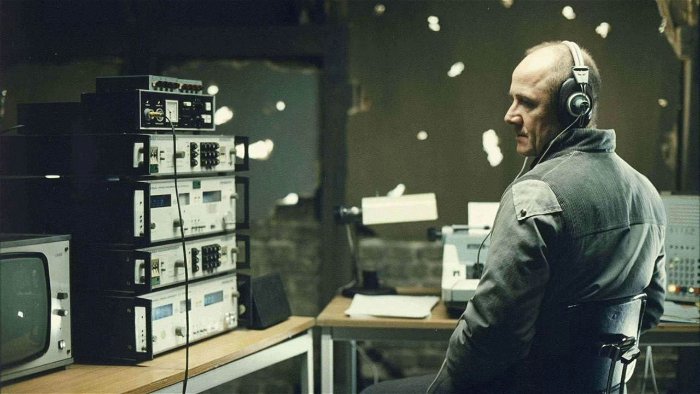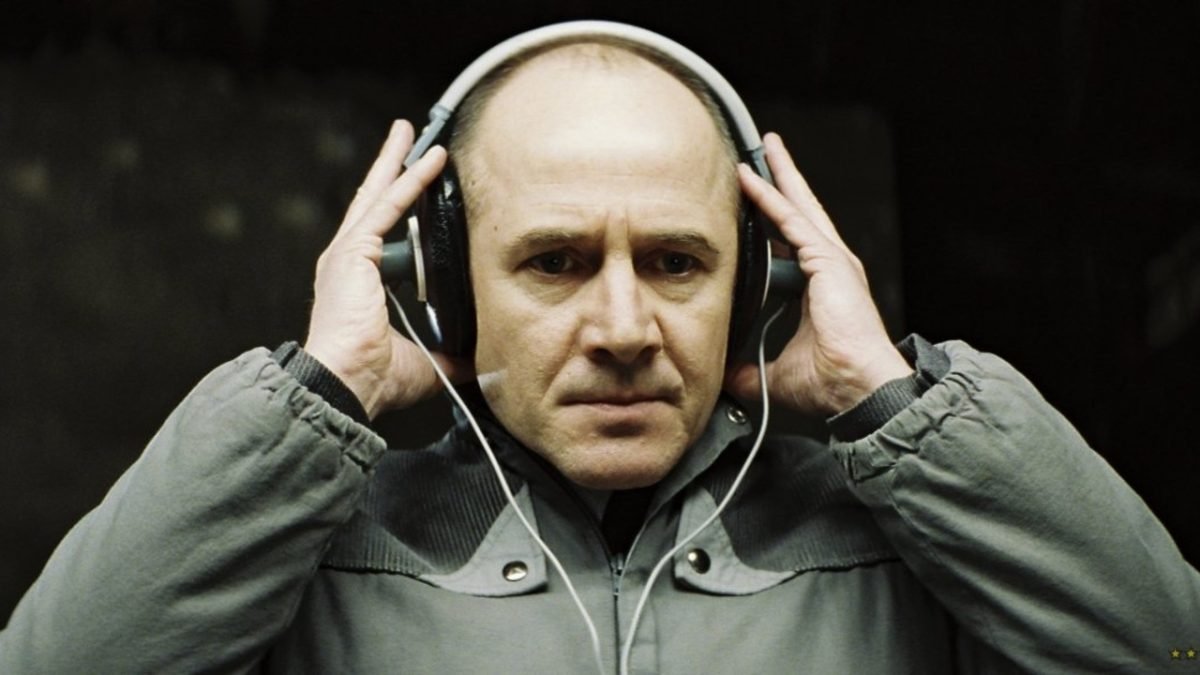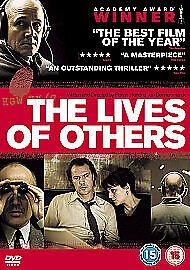The presumptive winner of the Best Foreign Language film award at this year’s Academy Awards was Guillermo del Toro’s fairy tale for grown-ups Pan’s Labyrinth. Conversely, the Golden Globes cheated by giving their foreign film award to Letters from Iwo Jima, which may have been in Japanese mostly, but it was still made by an American director for an American studio. So it was something of a surprise when the Oscars crowned Das Leben der Anderen as the best foreign language film. That is, everyone except the people who had actually seen the movie, which, until recently, was probably few in number. But with this all-important trophy in hand, it seems that art houses and repository theatres are bringing it to the mass public at last.
Translated from German as The Lives of Others, the film takes place in East Germany in 1984, when the end of the Cold War is still five long years away. A party minister has the commander of the Stasi (East German secret police) assign someone to put the boyfriend of his mistress under surveillance. The assignment falls to Capt. Wiesler (Ulrich Mühe), an expert in his field and a man with 20 years experience in capturing and interrogating enemies of the state. Wiesler begins eavesdropping on playwright Georg Dreyman (Sebastian Koch) and his girlfriend actress Christa-Maria Sieland (Martina Gedeck) from a crow’s nest in the attic of their building. The presumption of the minister and Wiesler’s superiors is that Dreyman, being an artisan, is probably hiding something easily indictable, something that would get him jailed for a very long time.
Wiesler’s monitoring at first doesn’t seem to come to much beyond learning about Dreyman’s receipt of delivery of “unapproved” books and papers from the West. Soon though, the suicide of a dear friend and black-listed theatre director spurs Dreyman to speak out about the way the East German government is underreporting suicides, many of whom are members of the artistic community, within its own borders. Typically this would be just the sort of evidence the Stasi would need to raid house, but for whatever reason, Wiesler begins hiding the fact that Dreyman is working on an article that will cast the government and his party into a bad light.

Director Florian Henckel von Donnersmarck is phenomenal in the way he executes the elaborate shell game that Wiesler plays. Many of the scenes with Wiesler at his station listening to the goings on in Dreyman’s apartment are shot in such a way that it feels like we, the audience, are eavesdropping on him. There’s such a deliberate sense of movement and action in the way the characters are followed by the camera and the way that the actors bring those characters to life; it feels true to what must have the facts of life in that place at that time. But at the same time I really didn’t detect a sense of dread from Koch or any of the other so-called subversive characters. While a general attitude of defiance was played well, I thought that Dreyman and others really didn’t show any worry about the potentially serious consequences of their actions.
Aside from this though, the performances were flawless, especially Mühe as Wiesler, who finds himself attracted to the richness and depth of their lives as opposed to Dreyman and Christa as people. His actions come from a place of desire to preserve what he perceives as their perfect life of love and cultural fulfillment. Wiesler isn’t sinister; he’s a bureaucrat and a beat cop with state-of-the-art surveillance equipment. He’s not afraid to level threats though, and when he does it can be a little frightening because you know he’s in a position to make your life even more miserable than it probably is. Most of the time though it’s on Mühe to play his inner pragmatist and inner optimist off each other and his does so masterfully.
The set direction does a wonderful job of capturing the sparse and overall blandness of the East German cityscape; von Donnersmarck’s cameras translate that drab kind of greyness in the cinematography as well. The movie isn’t a plebiscite against the crumminess of life in the East either, despite the fact that von Donnersmarck is a born and bred West German. The film’s final scenes take place post-Iron Curtain and von Donnersmarck doesn’t shy away from the fact that life in East Germany at the time wasn’t candy and pigtails in spite of the end of Communism. The film does end on a positive note however, as Wiesler is given a genuine and touching tip of the hat for his part as Dreyman’s guardian angel.
Simply put, The Lives of Others is one of the finest films I’ve seen in some time and definitely one of the best films of the year to date. It’s lyrical and haunting and reminds the viewer that even government oppressors are people too and sometimes they remember that fact all on their own and often in surprising ways.






